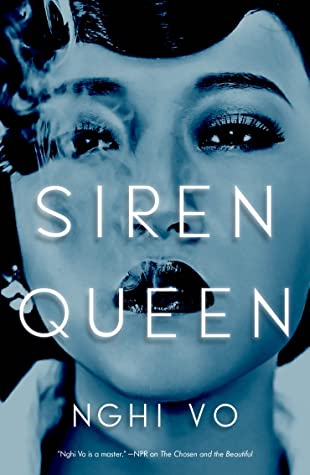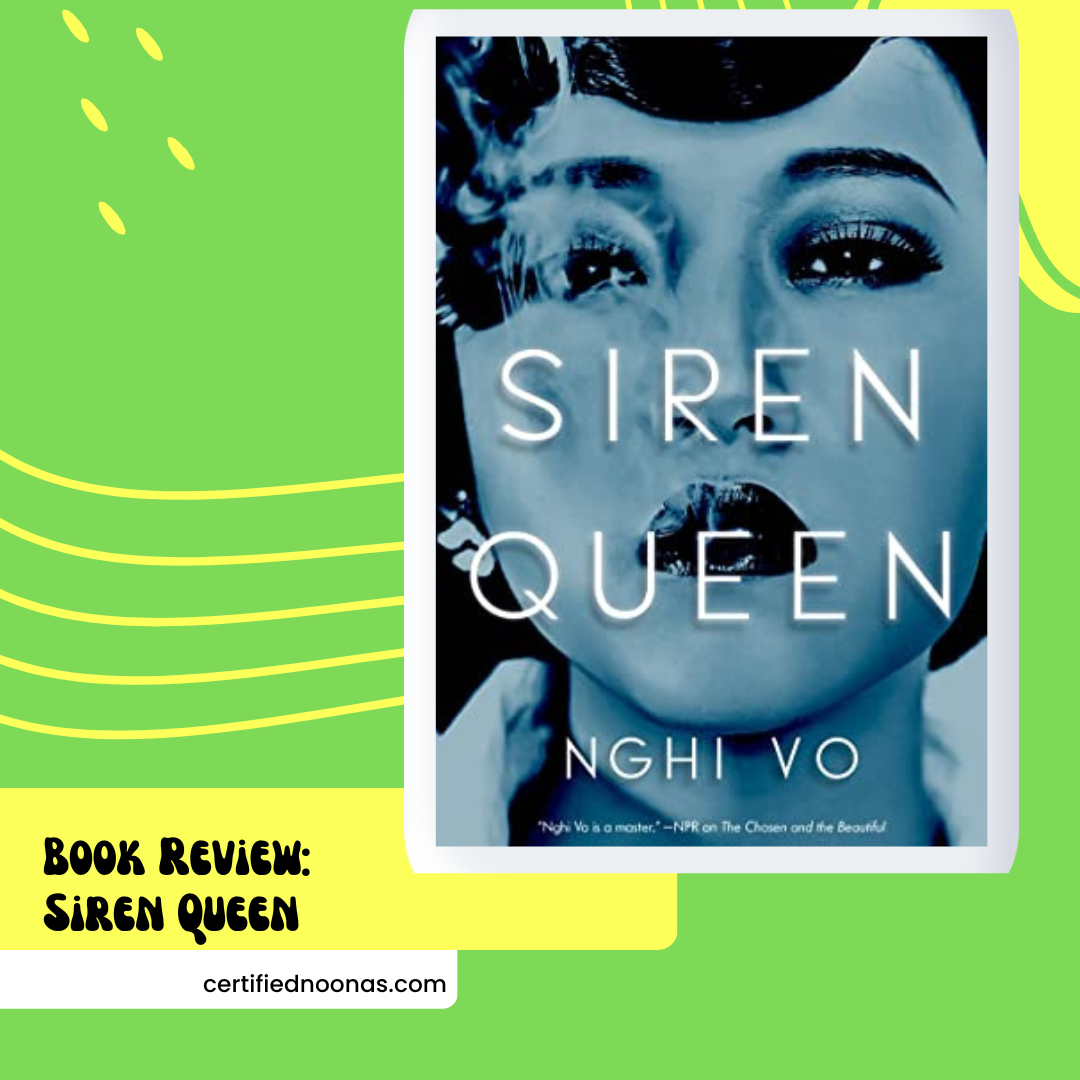The new book Siren Queen by Nghi Vo is a dark fairy tale set in the Golden Age of Hollywood. The story is run through with a thread of magic that sets it apart from other similar stories. Despite the magical edge (or perhaps because of it), the story and it’s characters are so realistic that this fake Hollywood story reads as a very real memoir. At times the characters seem so well-fleshed out that I wondered if I were as into classic film as my friend Book It With Becca, would I easily recognize them as thinly-veiled versions of real people?

Overview
The book begins with a young Chinese American girl who’s family runs a laundry service. She stumbles upon a movie set one day and gets cast as an orphan beggar for a single scene and her life is forever changed. She works fairly steadily in bit parts and background roles for a few years whenever the director is shooting a scene in her neighbourhood. One day the lead actress throws a fit about the “sexpot” in the background, and the director looks at her in a new light. It’s time to become a real actress. But our heroine wants to do things on her own terms, beholden to no one. She makes her chance, and in the process winds up signing a 3-year contract with Wolf Studios under the screen name of Luli Wei.
The rest of the book follows the life and loves of Luli as she fights to find a place for herself, one that doesn’t involve playing the maid. But there is always someone prettier, better suited, or simply more white than Luli. The window is short and Luli is determined to make the most of her opportunity. Near the end of the book, Luli describes young actresses as flowers who need to be noticed at the height of their bloom if they want to become immortal. This is the story of Luli blooming and fighting for the world to recognize that bloom before it fades.
Magic
Magic is woven through the story in a matter of fact way that is never explained but simply meant to be understood as true. The magical elements are so subtle that they first appear as if they are merely metaphors or perhaps the way that a young child interprets the strangeness of the adult world. But as the story continues, and our heroine grows older, the magical elements grow stronger instead of fading with her childhood. A silvery mark where an actress kissed her forehead as a child is used as protection and currency years later. The woman who runs the movie theatre allows special girls to pay for admission with 2 months of their lives, taken in the form of an inch of hair trimmed off and folded into a silk sachet. Magical potions can buy immortality and mechanical statues come to life. This is a world of quiet magic. It is not a loud or obvious, but if one can simply accept the magic for what it is, one can find their way through it. This goes for the reader as well as the characters in the story. You have to be willing to just go with the flow of the story and accept that in this world magic exists. It doesn’t exist for everyone maybe, but it is there if you are willing to see it.
For me the magical element made sense and worked well within the framework of the story. It felt similar to the way that Asian dramas often have a magical element to them that is simply understood to be true. Like a person of faith seeing the spiritual within their everyday life, Nghi Vo creates a world where people have faith in magic. Perhaps it is a metaphor for the magic of the silver screen, or maybe it is an older magic than that. Maybe it is a combination of the two. Whatever the intention of the author, the story works. Rather than approaching it as the Urban Fantasy that it is labelled as, one might be better off to think of it as a fairy tale, or something like a Shakespearean comedy, where magic is there, but it is not the whole of the thing.
Personal Thoughts
I really enjoyed this story. The magical element made it more interesting that I had expected. It started out a little dry, but readable, as a story about a Chinese American girl trying to make a place for herself in a world that would always see her as foreign, no matter how well she spoke English. The story is that, but it is also so much more. I didn’t see the Urban Fantasy tags before I started reading it. If I had, perhaps my experience with the book wouldn’t feel the same. I went in expecting a story about the racism, misogyny, and homophobia of the early film industry. Those topics were certainly covered, but the way the author wove them together using magical elements is, well… magical. Nghi Vo has created a magical masterpiece that gives a look into a very real time period in American film history but uses very unreal elements to bring the shots into focus.

